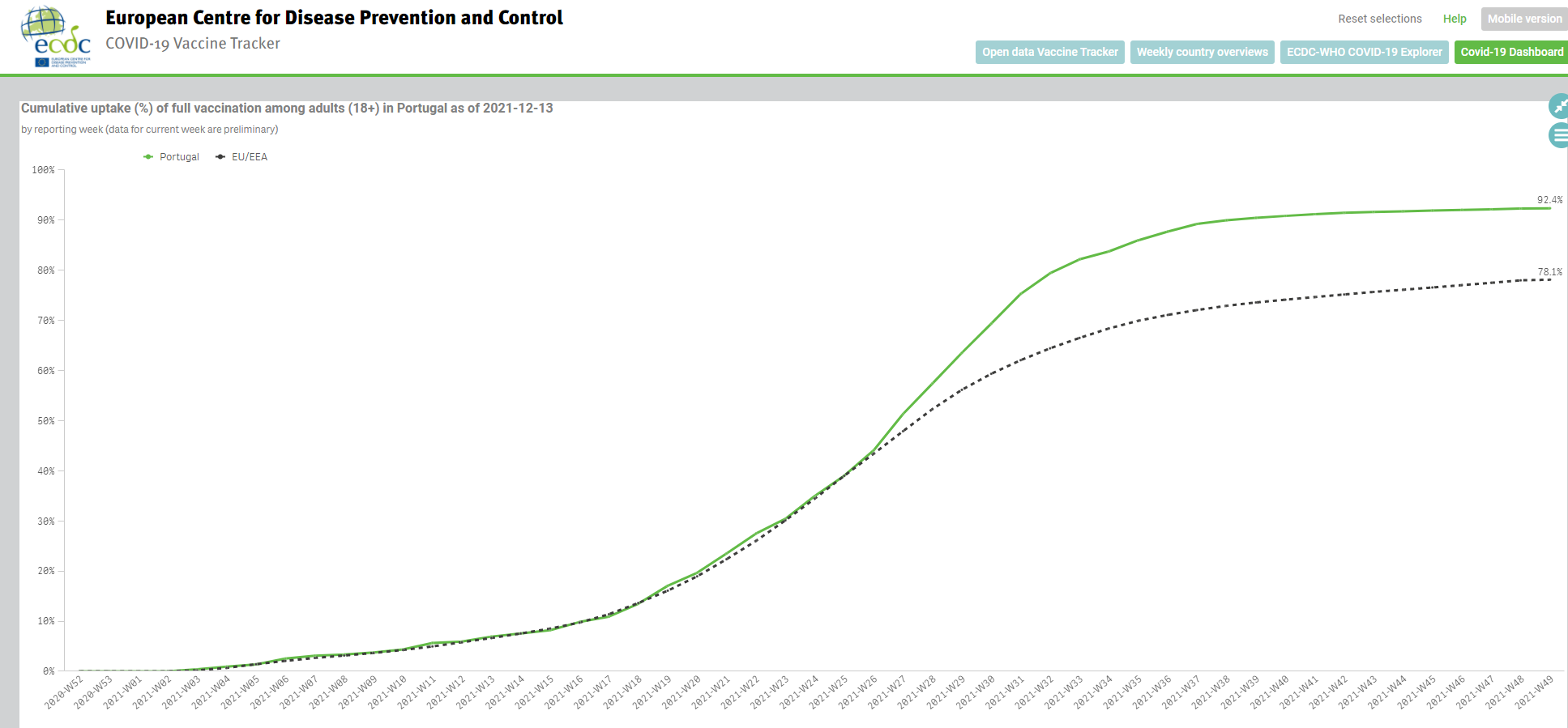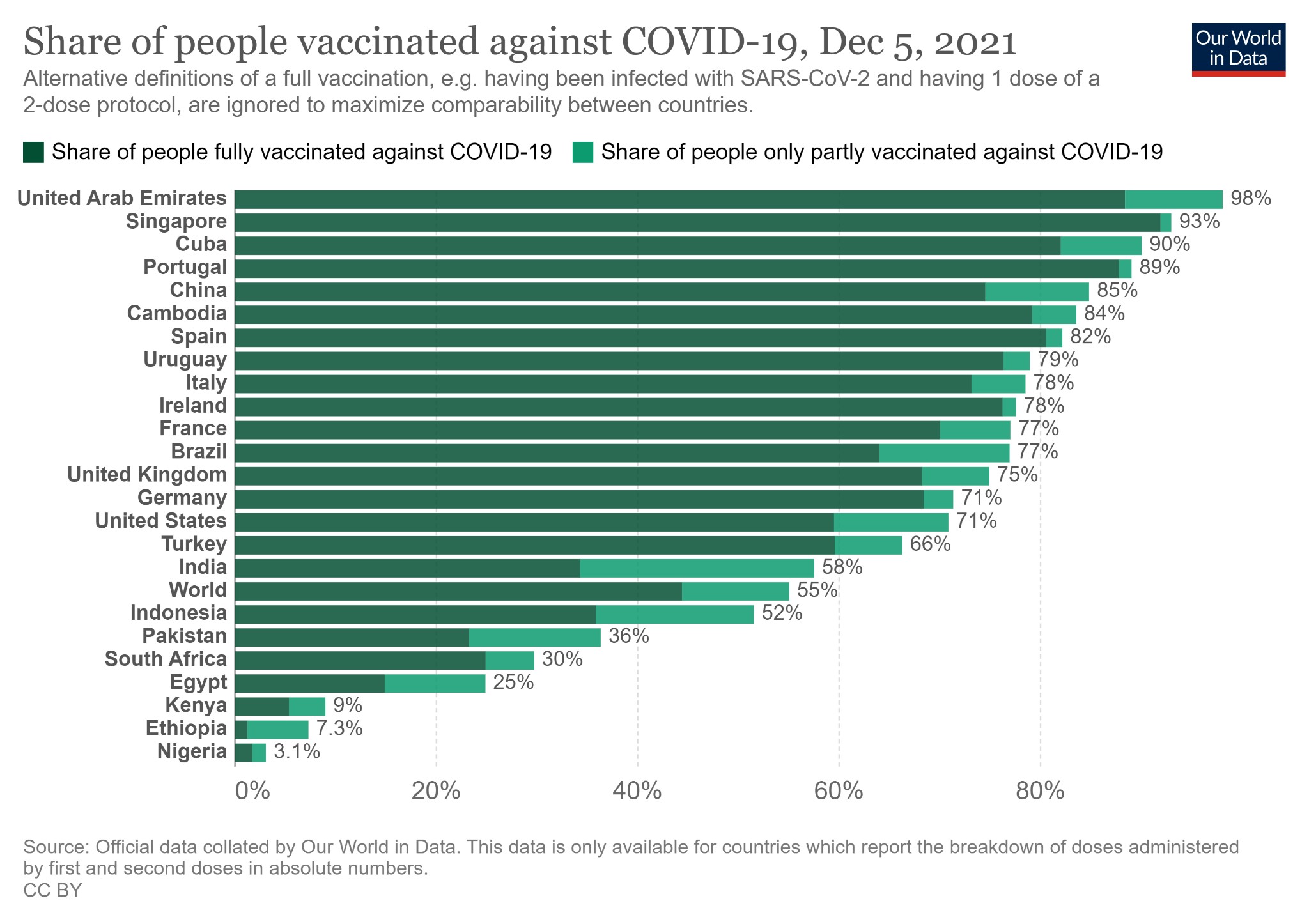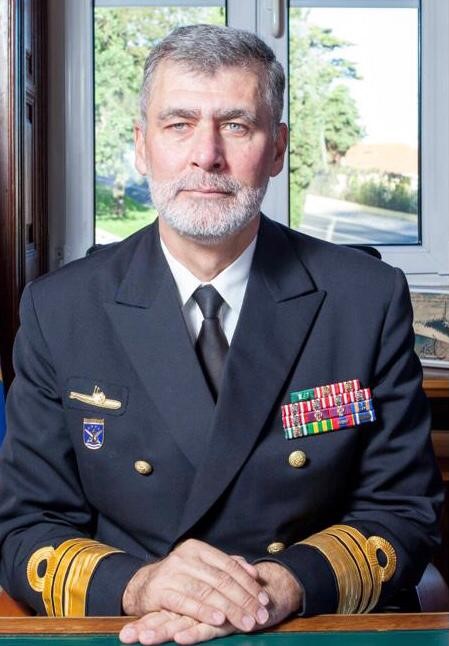In mid-December 2020, Portugal was reporting 100 COVID-related daily deaths. By late January, this had risen to 300 people dying each day. Now, thanks to one of the highest vaccine uptake rates in Europe, the death toll is a fraction of that seen in the dark days of last winter, even as case numbers tick upwards.
The picture stands in stark contrast with countries such as Romania where vaccination rates are low and death rates are now at their highest since the pandemic began, or Poland where the latest wave has pushed mortality upwards while officials scramble to tackle vaccine hesitancy.

Portugal’s vaccine uptake pulled ahead of the EU average in the middle of the summer of 2021. Much of the credit has been directed towards Vice Admiral Henrique Gouveia e Melo who led the campaign, executed by a civilian army of vaccinators across the country.
The former submarine commander oversaw a logistically focused and apolitical approach which mobilised the public in what was quickly framed as a national effort: a war on COVID.
The process was managed centrally, ensuring a coordinated rollout across the country. The government and opposition parties were supportive, while health professionals, public health experts and a wide range of public figures gave their backing.
‘The race to be number 1 in the world became a source of national pride and something the population rallied around,’ Dr Diogo Medina, a public health doctor based in Lisbon, told Vaccines Today.
Depending on how the numbers are crunched, Portugal has been near the top of the league for several months, without introducing a vaccine mandate. Dr Medina suggests that the public perceives recommended vaccines to be a de facto requirement, even though there is no penalty for opting out.
‘In Portugal, only Tetanus and diphtheria are legally mandatory vaccines, but the majority of the population does not understand this nuance and believes all vaccines included in the national vaccination calendar to be mandatory,’ he explained. ‘Although that is not the case, it has historically contributed to high adherence to vaccination.’

Polling suggests that just 2.2% of Portuguese citizens do not want the vaccine, indicating a strong level of trust in health authorities and the vaccine programme. Manuela Ivone da Cunha, a Portuguese anthropologist who has studied anti-vaccination movements, told the New York Times that ‘vaccine doubters and anti-vaxxers are in the minority in Portugal, and they are also less vocal’ than they are in many other countries.
Maria Viegas, former Public Health Director at the European Medical Students Association and a final year medical student in Lisbon, agrees. She said Portuguese citizens have a tradition of following the national vaccine programmes. ‘It’s just not a cultural thing to be anti-science in this country.’ This is reflected in the country’s high uptake rates for all recommended vaccines, beginning with infant immunisations. ‘The COVID-19 vaccine is just another vaccine that has been introduced to the population; one more vaccine that saves lives and spares you from the harmful sequelae of infection,’ Viegas told Vaccines Today. ‘The highly coordinated campaign based on major vaccination centers and strict organization with the capacity to vaccinate thousands per day made our campaign a huge success.’
The role of the military in spearheading the campaign is somewhat unique, although several European countries have enlisted logistical support from their armed forces. In Portugal, handing control to a high-profile admiral was reassuring to citizens that the campaign would be efficient and free of political complexities, Viegas said.
A boost for life-long immunisation?

While Portugal’s infant immunisation rates are also excellent, there may still be some scope for building on the momentum generated by the COVID-19 vaccine campaign. For example, as vaccines are now seen to be for people of all ages, uptake of vaccines against flu and pneumococcal disease could also be targeted. Viegas notes that the target groups for these vaccines overlap significantly with those prioritised for COVID-19 vaccination.
‘It is indeed harder to convince people that they can benefit from the flu vaccine, since most don’t seem to find the need for it or perhaps are unwilling to have a yearly shot,’ she said. ‘However, it’s fascinating to see that with the pandemic there was a higher search for anti-flu vaccines than in previous years.’
Just as countries struggling with low COVID-19 vaccination rates should worry about the impact on the wider immunisation programme, Portugal’s near-perfect delivery of COVID-19 vaccines could have a long-term positive effect on the development of life-course immunisation.
As for Vice Admiral Henrique Gouveia e Melo, he has been elevated to the status of a national treasure. Along with being named among the most influential people in the country, he has attracted international headlines and collected a Golden Globe in Portugal – which he intends to leave with the Ministry for Health to honour the thousands of foot soldiers that made the campaign a success.



